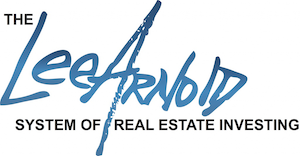This is an excerpt from the new book “How To Master the Art of Brokering Residential AND COMMERCIAL Private Money”:
To understand private money brokering you need to understand relationships among the three key roles, why they are involved in private money lending, and some key characteristics that can help you find likely prospects. In a nutshell we are talking about someone who needs money, someone who has money and someone who brings those two together. Let’s go into more detail about each participant: the borrower, the lender and the broker.
Who is the Private Money Borrower?
Starting with the borrower, you will find that private money borrowers tend to be investors who need quick funding to complete time-sensitive real estate transactions. The investor may have been denied a bank loan for any number of possible reasons, including poor credit, too many concurrent loans or an overall total amount borrowed that exceeds the bank’s rules. Or, they may just want to avoid the long hassle of trying to get a bank or institutional loan.
They may need a more flexible loan than a bank is willing to give. In some cases they have equity in one property they would like to use to purchase or rehab another property. Banks are not as open to cross-collateralization as private lenders tend to be.
The borrower may have a complex business structure. Many borrowers have set up corporations, LLCs, and trusts, which make some banks uncomfortable. They may have credit problems, past bankruptcies, or divorces that are red flags or showstoppers for typical banks.
The bottom line is that there are many possible reasons why investors want a private money loan instead. You have the opportunity to help them in your role as broker.
Most private money transactions require that the borrower be a business entity, not an individual. That means that the borrower needs to have a corporation, LLC or trust established to buy and own the property and to apply for the loan. That is not a difficult step and you will find that most borrowers already know that and have taken care of it.
Who is the Private Money Lender?
Private money lenders come in all shapes and sizes. They may be private individuals or their IRA or 401k accounts. They may be someone who has set up a pooled fund using money from multiple people with large amounts of cash to invest. They may be family offices, the managers of large family wealth. Many of them are normal folks like you and me that understand the safety of real estate investments and are looking for either cash flow or a better return than banks are paying on CDs…and they understand the risks of investing in stocks and bonds for anything other than the very long term.
If you can hold on long enough, the stock and bond markets have tended to recover from drops and continue rising. That can take many years. While those markets rise and fall, a person’s stage in life does not always line up with the rising cycle of those markets. In the short term, it is possible for a retiree, for instance, or a parent needing to fund a child’s college education, to need the money just after the markets drop, losing massive amounts of the investor’s net worth. Withdrawals at that point can wipe a person out. Additionally, such investing requires that you tie up your funds for extended time periods to achieve reasonable results.
Many lenders may have been investing in real estate for a long time, often as active investors buying, rehabbing and either selling or leasing property after property. They may have extensive portfolios of rental properties. Or they may decide that being a landlord is more hassle than they want. They would prefer to invest passively—let someone else do the work and just temporarily borrow the lender’s cash. That way the lender can receive ongoing, residual income over the life of the loan. Such loans often earn anywhere from 8-12% annualized return. These loans tend to be anywhere from 3 to 24 months in duration, so the lender’s money is significantly more liquid and available sooner for new opportunities.
A key advantage to such real estate loans is that they are secured by real property. You can go see it, you can touch it, you can watch the rehab progress, and you have something more than just a piece of paper with numbers and fancy printing on it. That real property is generally worth more than the amount of the loan, so price drops in a housing market will not remove the lender’s ability to take ownership of the house, sell it and recover the amount of their loan if the borrower defaults. If the house suffers damage from a fire or vandalism, hazard insurance can make it whole and allow it to continue to be solid security for the loan. These loans tend to be in first position, so they will be paid off first, with only a few exceptions like unpaid taxes.
Most lenders require the borrower to have some “skin in the game.” In other words, they expect the borrower to put up something that will be financially painful if they lose it by walking away from the loan. That could come in the form of their own cash or cash from a partner, cross-collateral in the form of equity in other real estate, or the agreement of the seller to wait to be paid in full until after the rehab is complete and the borrower sells the property. That is called, “seller carryback.” It is an excellent option for keeping investment costs low. Savvy borrowers use it as often as possible.
If you have ever invested in mutual funds or used an investment advisor to select stocks and bonds, you know that you are trusting someone else to make decisions for you, decisions that could be good or bad for you, but which will not hurt the fund manager or advisor as much as they hurt you if they go bad. That is not okay for some investors. They prefer to control their own investments. Some do detailed research and subscribe to multiple investment newsletters so they can make intelligent decisions. Yet, even then the success or failure of the business behind those stocks depends on decisions the company’s internal management makes…not you. Even then you are investing at the mercy of others’ decision.
In real estate investing, you are making your own decisions. You make your money when you buy at the right price. You collect that money after you have rehabbed it and sold it. You are in control at every step. Some investors no longer wish to be actively involved by swinging their own hammers or managing someone who does. They still recognize the value of real estate investing and can lend money to borrowers. They minimize their risk with careful underwriting, so even if the borrower defaults, they can retrieve their principal, either through foreclosure and sale or by seeking a deficiency judgment against the borrower if the foreclosure sale does not pay them completely. Good underwriting avoids foreclosure. Successful lenders underwrite well or pay someone who does it well. Good underwriters require plenty of due diligence to vet out the properties and make sure the lender is putting their money into a good deal. Then they supply all the evidence they have collected to the lender, who can make their own decision about whether it is a good deal. This whole process allows the lender not only to control their investments, but also to control their yield on those investments. Savvy lenders can often achieve double- and triple-digit annual yields if they know what they are doing.
One of the additional reasons private money lenders lend is that while it helps them, it also helps the investor/borrower make money, it helps the investor’s family, and it helps the community by making jobs, increasing property values, and growing the tax base that funds schools, police and fire departments. It is one of the few businesses you can be in to have that kind of direct, positive effect on so many lives.
The bottom line is this: There is plenty of Other People’s Money (OPM) out there. And it’s not all sitting in one place in one person’s account. There are lots of private investors out there for you to find. You just need to do a good job of looking to find them.
Who Is The Private Money Broker?
A formal definition of a private money broker is, “an intermediary who brings non-owner occupied residential and commercial real estate investor borrowers and private money institutions together, but does not use its own funds to originate private money mortgages.”
In general terms, a broker is someone who finds someone that needs something, finds someone else who has that something, and then arranges for the purchase, rent, borrow or other transfer of that something between the two of them to take place. There are mortgage brokers, stock brokers, apartment rental brokers, real estate brokers, insurance brokers, rare gem brokers, automobile brokers, etc. In each case they are the go-between. They do not need to have their own mortgage funds or own the stocks, the apartment, the real estate, the insurance company, the rare gem or the automobile that they intend to broker. They get paid to bring the owners of those items together with the persons who want them. It is their match-making service that is valuable and that earns them their commissions.
Private money brokers tend to be respected, their services are valued and they generally have a very high income potential. Private money brokers have a special advantage over other kinds of brokers: There is only one “brand” of money. Everyone needs it, they do not come out with new models every year, the “features” of money do not change from company to company, as they do with automobiles or insurance, and it is much easier for average people to understand than stocks, bonds, or insurance policies. Once investors know about you as a broker, they will flock to you. Your business will not be seasonal and it is largely recession-proof. Whether the economy is up or down, real estate investors are busy finding good deals and needing funding. They may find different kinds of deals in different economies, but the need to buy, sell or refinance real estate never goes completely away.
Private money brokering is a particularly good business to start because it requires one of the smallest start-up investments you can find. You do not need to buy inventory. You do not need to buy a franchise or rent a store. You get paid immediately when transactions close and do not have to deal with receivables, refunds or losses.
To be successful you only need to focus on the level of service you provide to your clients and the cost of that money. The level of service you provide is what sets you apart from your competition (other brokers and other funding sources) and that which provides the value that justifies your commission. It also determines how often those clients will want to come back to you for more. Investors could potentially come back to you 5-10 times a year, if they are experienced and active.
The best part for many brokers is the pleasure they receive from helping other people at the same time they are giving themselves personal and financial freedom. They experience a more fulfilling life, have more family time and more travel time. All in all, they find it to be a broader, more dynamic experience than they ever thought they would find.
Check back often for more information about the release of the book and the DVD that will accompany it.
To Your Success;
Lee A. Arnold
CEO
The Lee Arnold System of Real Estate Investing
To read more articles click here.


